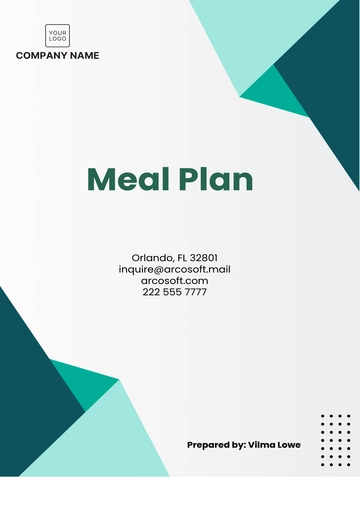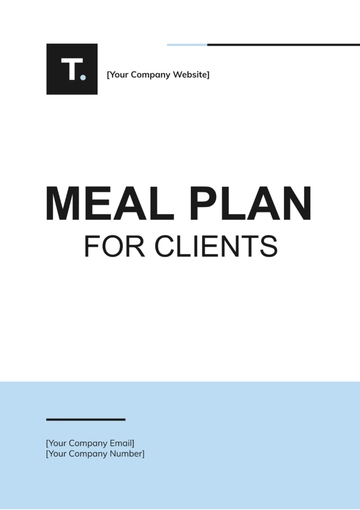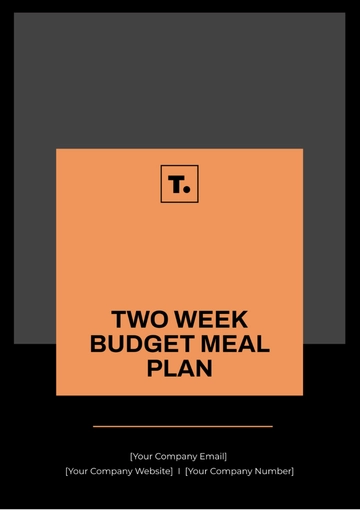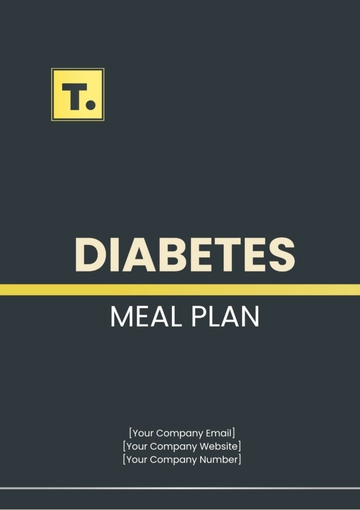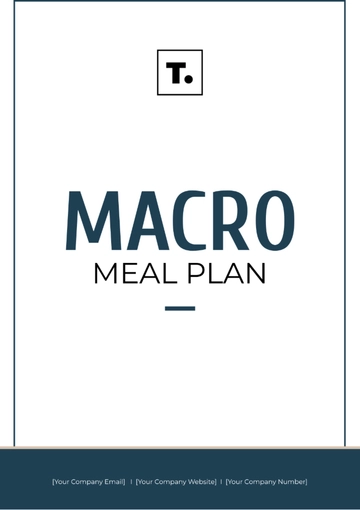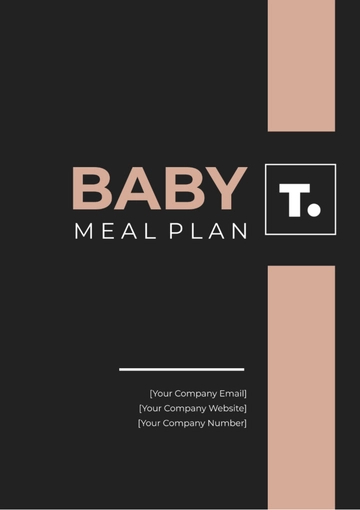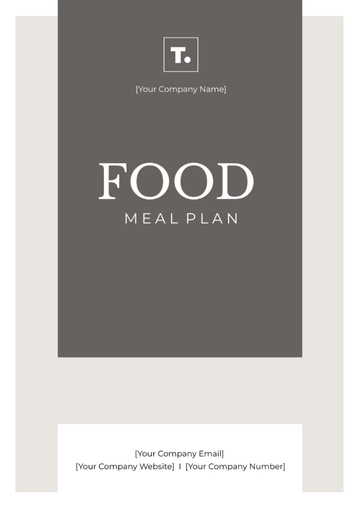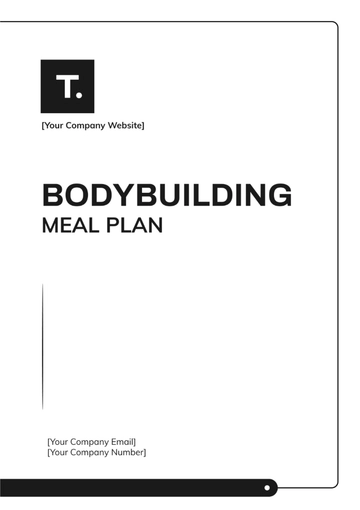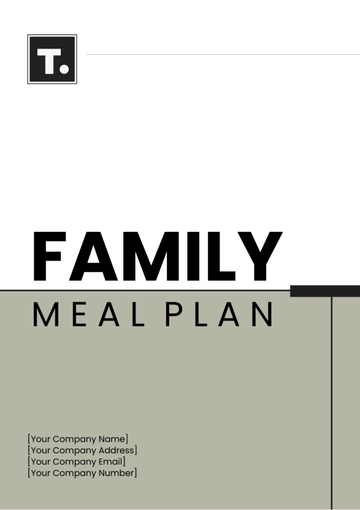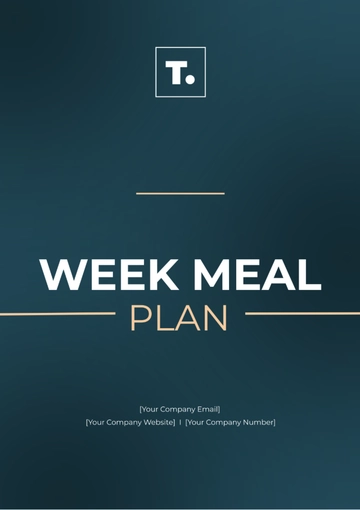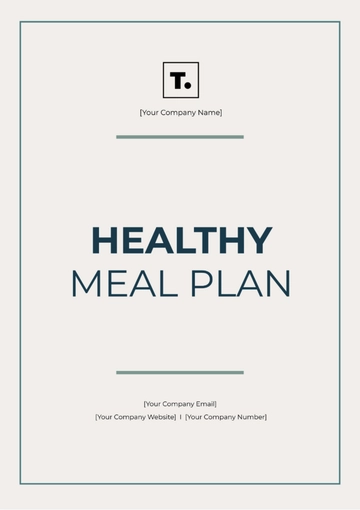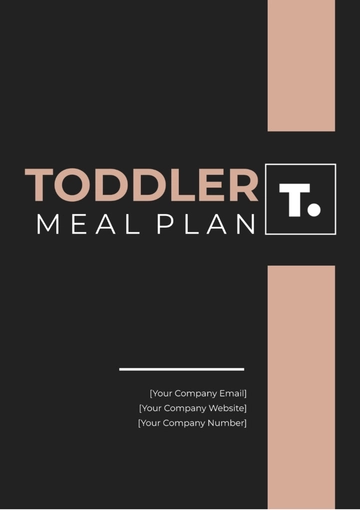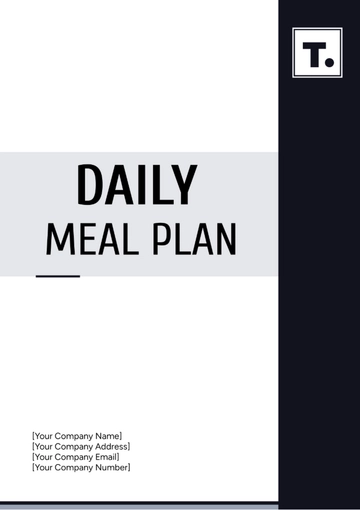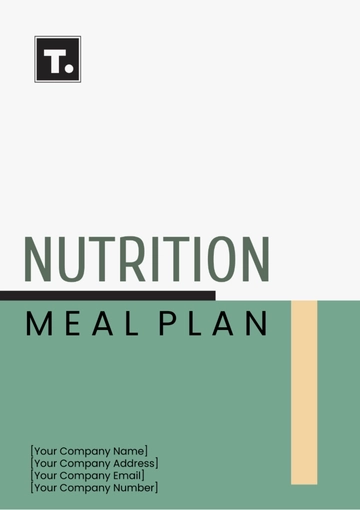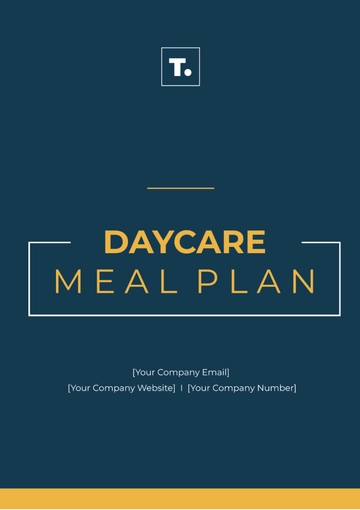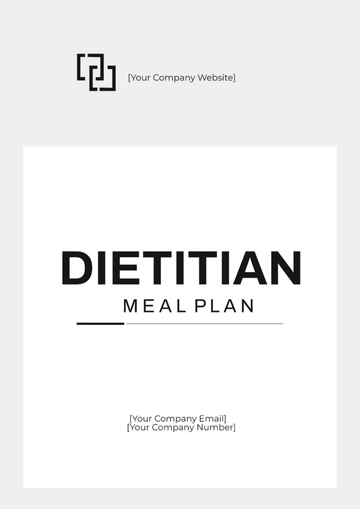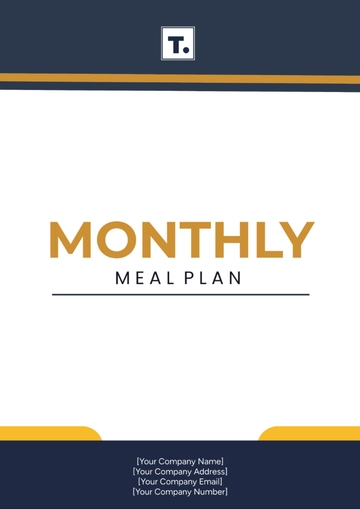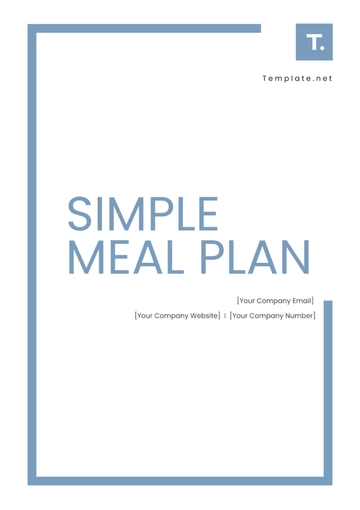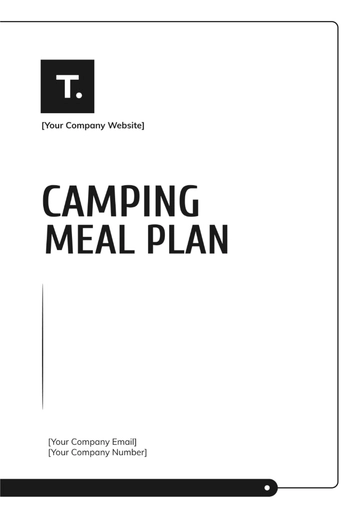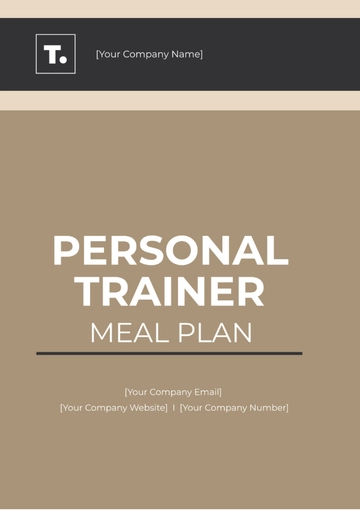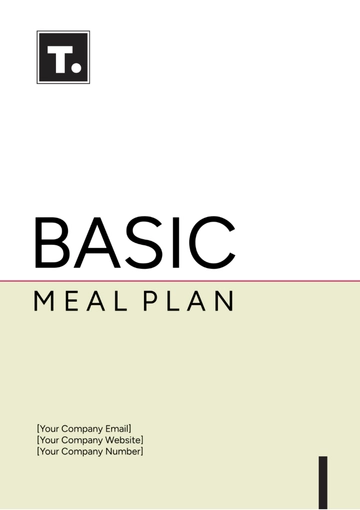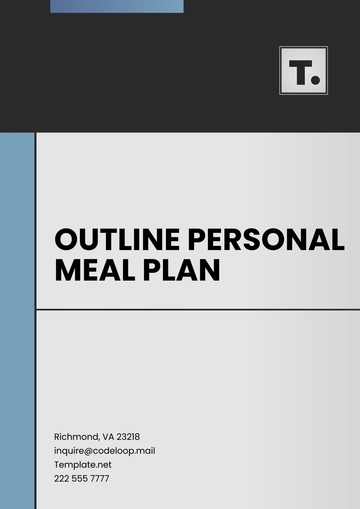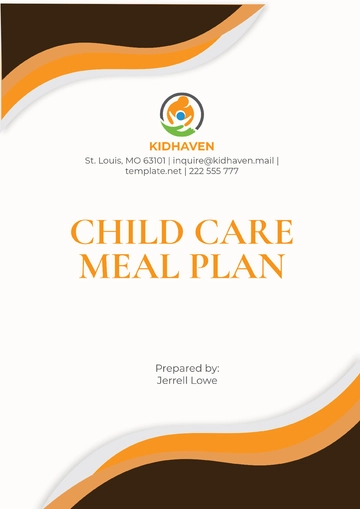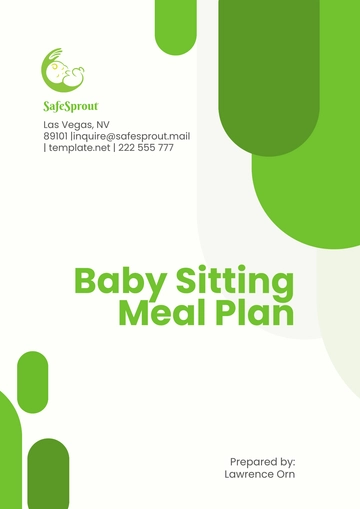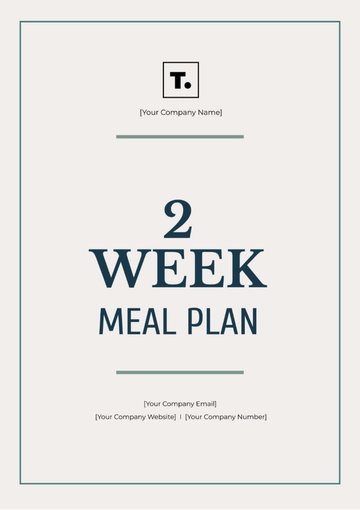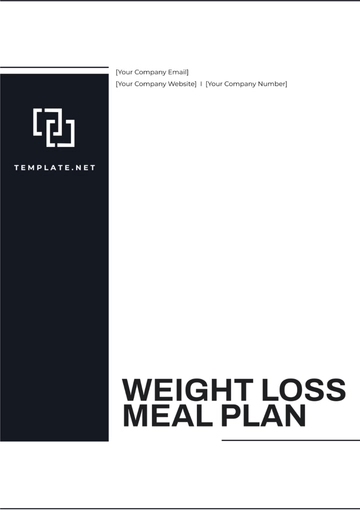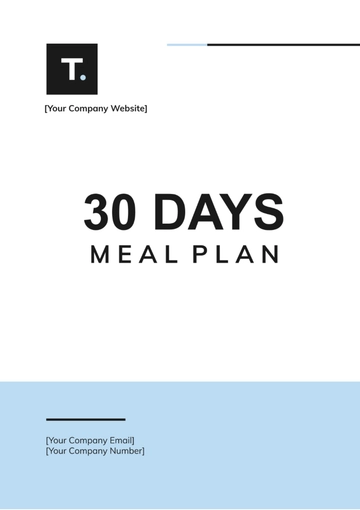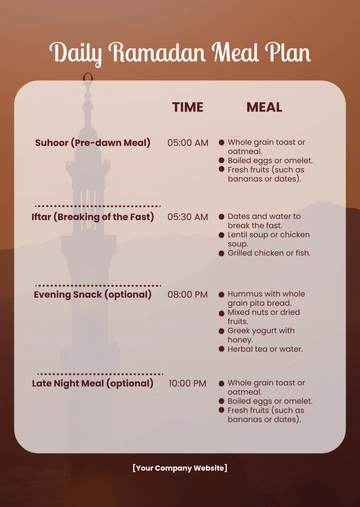Free Baby Meal Plan
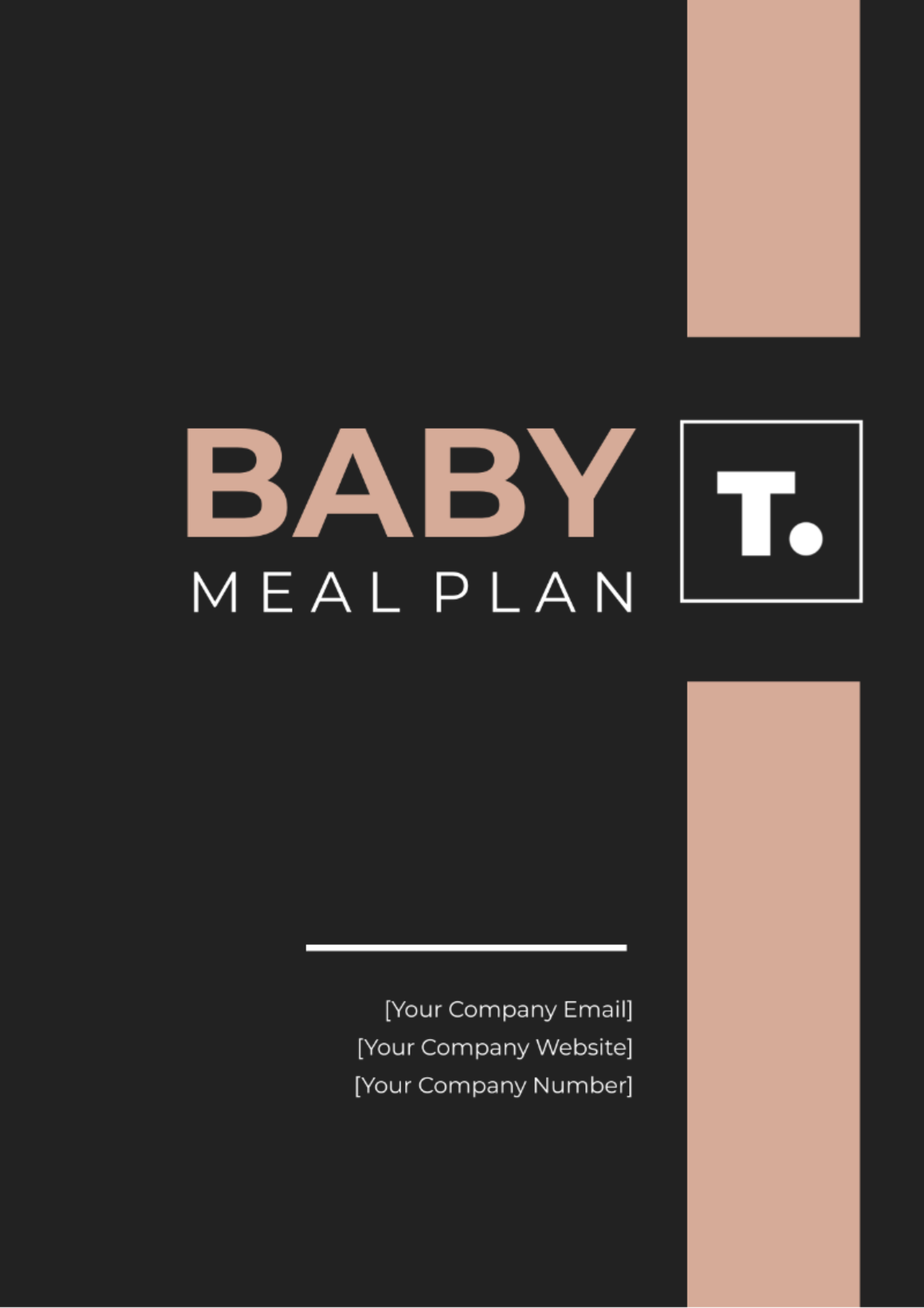
Written by: [Your Name]
I. Introduction
Your baby's nutrition is paramount for their healthy growth and development. This Baby Meal Plan is crafted with that in mind, [Your Company Name] aims to provide a solid foundation for your little one's dietary needs and to foster healthy eating habits from the start. By following this plan, you can ensure that your baby receives the essential nutrients required for optimal growth and development, setting them toward a lifetime of good health.
II. Nutritional Guidelines:
Ensuring your baby receives the right balance of nutrients is crucial. Here's a breakdown of the recommended daily intake:
Nutrient | Recommended Daily Intake |
|---|---|
Carbohydrates | 40-50 grams |
Protein | 11-14 grams |
Fats | 30-40 grams |
Vitamins | Refer to Feeding Tips |
Minerals | Refer to Feeding Tips |
These guidelines serve as a roadmap for crafting meals that meet your baby's nutritional requirements, supporting their overall health and development.
III. Meal Schedule:
Establishing a consistent meal schedule helps regulate your baby's eating habits and ensures they receive nourishment regularly throughout the day. Here's a suggested meal schedule for each day of the week:
Time | Monday | Tuesday | Wednesday | Thursday | Friday |
|---|---|---|---|---|---|
7:00 AM | Breakfast | Breakfast | Breakfast | Breakfast | Breakfast |
10:00 AM | Snack | Snack | Snack | Snack | Snack |
1:00 PM | Lunch | Lunch | Lunch | Lunch | Lunch |
4:00 PM | Snack | Snack | Snack | Snack | Snack |
7:00 PM | Dinner | Dinner | Dinner | Dinner | Dinner |
This structured schedule helps create a routine for your baby, promoting healthy eating habits and ensuring they receive adequate nutrition throughout the day.
IV. Food Choices:
Offering a variety of mashed fruits and vegetables like bananas, avocados, peas, and carrots. These foods are rich in essential vitamins and minerals, supporting your baby's overall health and development. Soft-cooked grains such as rice and oatmeal provide a good source of carbohydrates for energy, while lean proteins like mashed beans or chicken aid in muscle and tissue growth. However, it's important to avoid certain foods like honey, nuts, whole grapes, and those with added sugars, which can pose choking hazards or allergic reactions for young children.
V. Feeding Tips:
Mealtime can be an enjoyable and bonding experience for you and your baby. Remember to supervise your baby during meals, encouraging them to explore new foods and textures at their own pace. Introduce new foods gradually, one at a time, to monitor for any allergic reactions. Encourage self-feeding with finger foods to develop fine motor skills and promote independence. Create a calm and distraction-free environment during meals, allowing your baby to focus on eating and enjoying their food.
VI. Allergy Information:
It's crucial to be aware of any known allergies or intolerances your baby may have. If your baby has allergies, consult with your pediatrician to identify suitable alternatives and ensure their nutritional needs are met. Consider hypoallergenic formulas or specialized baby foods labeled as allergen-free to avoid triggering allergic reactions.
VII. Additional Notes:
Every baby is unique, and their nutritional needs may vary. Always consult with a pediatrician or healthcare professional before making significant dietary changes for your baby. Be flexible and adapt the meal plan based on your baby's individual preferences, developmental stage, and dietary requirements. With careful planning and attention to your baby's needs, you can provide them with the best possible start to a healthy and happy life.
- 100% Customizable, free editor
- Access 1 Million+ Templates, photo’s & graphics
- Download or share as a template
- Click and replace photos, graphics, text, backgrounds
- Resize, crop, AI write & more
- Access advanced editor
Discover the Baby Meal Plan Template from Template.net. This fully customizable and editable template helps you plan nutritious meals effortlessly. Editable in our AI Editor Tool, it ensures convenience and personalization to suit your baby's needs. Easily tailor it to suit your baby's needs using our intuitive Ai Editor Tool. Simplify mealtime with ease.
